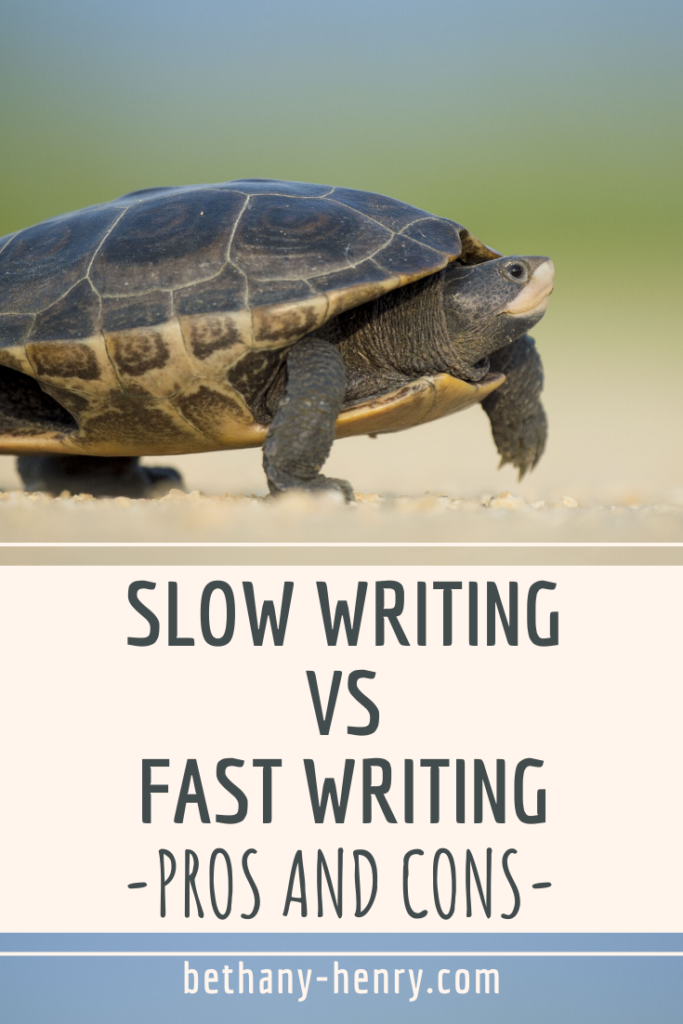Slow writing versus fast writing is an interesting comparison. Some authors write famously (and ridiculously) fast, writing books in a matter of days or weeks. And others take years and years (I’m looking at you, George R. R. Martin) to complete their work.
So which is better?
Should we push ourselves to write our novels quickly or be taking our time to labor over each word as we go?

As with many things, there is no easy or “right” answer.
Each writer, story, and situation is different.
But just because neither is “best” doesn’t mean we should consider the question. There are some definite pros and cons to writing quickly versus writing slowly so we’re going to break some of those down here.
Take a look and see where you think you may fall along the way!
Slow Writing Versus Fast Writing
Full disclaimer, I fall into the “fast writing” category for the most part. I try to write my first drafts as quickly as possible (yay nanowrimo!) and I generally push myself to keep moving forward as fast as possible.
This doesn’t mean I think fast writing is the only way to work though! It may not even always work for me. It’s just where I’m at now.

Slow Writing: Pros
- Gives you more time to be deliberate about word choices and editing as you go.
- Removes some of the pressure of deadlines and time related stress.
- Generally leads to cleaner/more polished drafts.
- More time available for planning out story structure, plot, characters, background, etc.
Slow Writing: Cons
- It takes a long time (by definition).
- Slow writing is sometimes used as an excuse for procrastination or putting things off due to fear.
- It may be harder to cut things when revising our stories, partially because we may be more invested in specific scenes or sentences that we’ve spent a long time crafting.
- Our writing may feel too forced or too planned out.
- It may be harder to experiment with new strategies or ideas since they would take a long time before seeing if they work.
- There is a higher time cost if needing to heavily revise later on.
Fast Writing: Pros
- More stories and projects get completed in a shorter amount of time.
- Increased learning by doing, since more projects are being completed.
- It may be easier and faster to cut or revise scenes since less time was invested.
- It could be easier to experiment with new projects since there is less of a time commitment.
Fast Writing: Cons
- It could be stressful to have shorter deadlines, even if self imposed.
- Increased risk of burn-out.
- Fast first drafts in particular aren’t usually as polished.
- Important things could be overlooked when writing quickly, leading to plot holes and large issues to fix later.
- The writer may fall back on cliches and tropes to keep things moving quickly.
So where do you fall on the fast versus slow writing continuum? Is that a good place for you, or how would you like to see yourself improve?
Each writer will have different strengths and weaknesses, and even each individual story may lend itself to a different writing style!
This isn’t about finding the “right” way to write- it’s about being aware of how we work and being open to strategies that may help us improve.
For further reading:
Why Some Writers are Much Faster Than Others: Four Quotes and Six Key Reasons – Aliventures
How I Went From Writing 2,000 Words a Day to 10,000 Words a Day – Pretentious Title
How to Create the Perfect Writing Process for You – Helping Writers Become Authors





